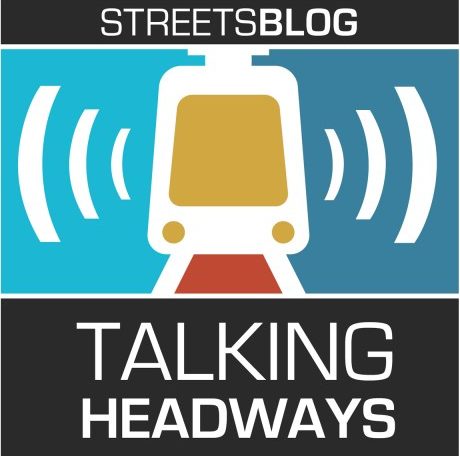Jeremy Levine, an assistant professor of organizational studies and sociology at the University of Michigan, talks about his book "Constructing Community: Urban Governance, Development, and Inequality in Boston." How do neighborhood groups, elected officials, and public servants claim the mantle of representing “the community”? Part 1 of 2.
For those of you who get your news through your eyes and not your ears, there’s an edited transcript below the audio player. If you want a full, unedited transcript (with some typos!), click here. If you want to listen, here you go:
?
Jeff Wood: All of these groups that you mentioned, they all are claiming to represent the community. And that’s something that’s a big part of, of your book. And it’s fascinating to look at how that gets portrayed or how that gets displayed for public consumption, for private consumption. It’s really fascinating to see. The thing that pops up the most of my head when you were just talking was the elected official that got talked away from a meeting basically by a public servant. I found that fascinating as well, just like who speaks for the community, who speaks at the community, those really interesting questions that you brought up in the book.
Jeremy Levine:I think about it as almost like a performance, which is not to denigrate it, or to say that it’s not real or contrived, but it’s a lot of people that want to empower the community, represent the community, bring benefits to the community, but that concept "community" is not something that’s very clear and obvious. It can mean anything from the people in a particular neighborhood, that’s the community. It can mean the people who show up to a public meeting. That’s the community too. Those are somewhat overlapping, but not necessarily. It could mean some general idea. It could mean a racial group, an ethnic group. That’s what we mean when we say the community, and this is really the source of the play on words.
That is the title of the book, "Constructing Community," all these different groups that are vying for influence to have a say over what happens in the community, are constructing different ideas of what the community means. And the example you bring up, I think was a really vivid one and actually happened really early in my field work. It stuck with me. I kept seeing sort of almost confirmatory examples throughout, but that one was one of the most vivid sort of examples of this, all these dynamics really coming to the fore.
So this was part of an urban agriculture initiative that the city was doing around early 2010s, "urban ag" as the slang was, was really popular in cities. As most of these fads around city planning happen and unfold like one city does it, there was a TED talk by a guy out of Pittsburgh and then everyone wanted to do it right?
Everyone wants to say that we’re the first one to do it, or we’re the best one to do it or whatever. Right? So urban ag happens and it happens in Boston and the city selects a number of sites where the possible urban farms can be. So one gets selected in the neighborhood of Four Corners, which is a sub neighborhood within the neighborhood of Dorchester. It’s a predominantly black, predominantly low-income neighborhood. So the meeting was about introducing the community, meaning the people who showed up to the meeting, that may or may not have been Four Corners residents from a black owned for-profit company that had submitted a bid to develop the site and basically create a urban farm on this half acre to an acre site.
So the city, local city government hosts this meeting with the local nonprofit that is representing the neighborhood, who they look at as the representative of the community, the Greater Four Corners Action Coalition, which was at the time the executive director was a guy named Marvin Martin, who was a middle-aged black man. So they host this meeting and they’re going through how these community meetings unfold, here is the guy that submitted the bid. Let’s get your feel, hear what you have to say about the community. Then we’ll incorporate that in as we issue out whether or not they’re going to get be successful in the bid or not.
So, halfway through the meeting, ... the city councilor of the area, his name is Charles Yancey and he’s was a long-term city counselor... 15 terms... comes to the meeting and he doesn’t sit at the front of the room, leading the meeting. He sits in the audience like all the rest of us that were there observing. At one point he challenges the premise of the meeting and he says, you know what? "I did not hear about this meeting. I didn’t hear the community wanted this meeting. You’re going to bring in this company. I think there’s pollution here. I don’t know what you’re going to be doing with your trucks, or what’s going to happen here. There’s gas tanks underground, who knows." And this really profound moment happened. It was subtle. No one really noticed it, but I, of course, the ethnographer there, I’m running everything down. I noticed it, which is that Marvin, who was the nonprofit director, had been standing in the room in the front of the room, near the corner, watching as things are unfolding, playing that role as emcee.
As the city counselor is sitting in the audience, talking about everything that’s wrong with this project, he literally walked around the room without anyone really noticing it. Real nice, subtle, no sort of big show about it and tapped Charles Yancey on his shoulder and whispered something into his ear that was inaudible. So none of us heard it, but what we did hear is after he finished whispering Charles Yancey counselor, Yancy said, "Well, it looks like I’ve been informed that I’ve overstayed my welcome. And apparently I need to sit down now." And this was like crazy, right? This is the elected representative of this neighborhood, right. Being said like, apparently I’m not an actual representative. At one point, he even went so far later in the meeting to say, "I’m a representative I’m elected so what I’m saying here needs to be responded to."
The city bureaucrats, the city officials, part of it was a joint between the Planning Department and Department of Neighborhood Development, which is somewhat like the planning department. They said, "okay, we hear you talk about the community concerns." We’re going to defer to Marvin, the nonprofit director. He can handle that. That that’s his territory, right? He’s the city representative. Councilor Yancy’s assistant was like, "no, no, no, no, no, no, no. I’m not asking him, all due respect. I’m asking you guys, you’re the city. This is like the city government thing. Like, you guys need to be accountable to this." And the city officials said, "no, look, hey, the community, non-profit, it’s their show. Like they’re the community conduit for us."
So ultimately Marvin and his staff said, "okay, look, we hear you, you know, this, you know, Rome wasn’t built in a day, there are plenty more meetings that we can have about this, but we talked to people in the community and we think that there's support for this. So we hear you we’ll think about it and we’ll sort of move forward with considering your concerns."
So I think this reveals a lot of different things. One, it reveals, I think, an elevated status of community-based nonprofits that are saying we represent the community. I think it shows the importance of other players in the field — like those city officials that are playing into this game as well, deferring to those nonprofits as the representatives. It also shows, I think, an acquiescence of local elected politicians, like Charles Yancey.
At that point, he sat down and said, okay, all right. I did my job later. He actually did a hearing to air his concerns about the overall urban agriculture initiative. At that hearing, he said the, the direct quote is in the book, so I’m going to paraphrase it. He said something along the lines of, "alright, well, my role has done here. I provided a forum for you to air your grievances. But like now you can all figure it out." So he even understood what his role in all of this was which, perhaps ironically, given that he was an elected politician representing that district, not really or at least not fully the representative of that particular community.






